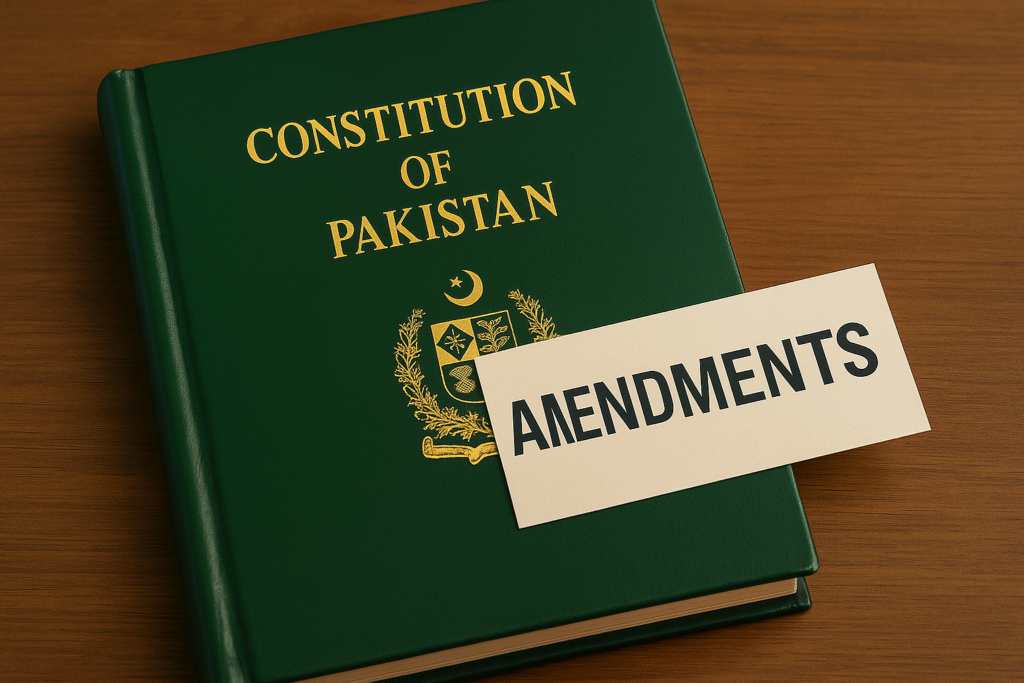ISLAMABAD: The 27th Constitutional Amendment in Pakistan has reignited political and constitutional debate over the division of powers between the federation and provinces, with critics warning it could roll back key devolution reforms introduced under the 18th Amendment.
Under the draft proposal, sectors such as education, population planning, and resource distribution—currently under provincial control—would be returned to federal authority. The government argues the move seeks to improve national policy coordination and strengthen governance, but constitutional experts warn it could erode provincial autonomy and concentrate power in Islamabad.
Senior analyst Nusrat Javed said the amendment could drastically reduce the provinces’ financial independence. “Nearly 60 percent of national revenue currently goes to the provinces,” he noted. “If federal powers expand, provincial finances will effectively fall under federal control.” He warned this shift could reshape Pakistan’s fiscal and political structure, making provinces dependent on federal funding for development.
To review NFC formula in 27th Constitutional Amendment in Pakistan
Journalist Ansar Abbasi said early details suggest the proposed amendment also includes reviving the district magistracy system, allowing deputy and assistant commissioners to exercise quasi-judicial powers such as on-the-spot sentencing and fines. “This will strengthen provincial control at the district level,” he said, “but provinces must build stronger governance capacity to manage expanded powers effectively.”
Abbasi added that the government is reviewing the National Finance Commission (NFC) Award formula, which decides how funds are shared between the federation and provinces. He said the center may gradually withdraw from federal welfare programs like the Benazir Income Support Programme, urging provinces to share the financial burden. Such a move, he said, could save the federal government over one trillion rupees annually.
He, however, maintained that certain sectors—especially education—should remain federally managed to ensure a unified national curriculum and identity. “The 18th Amendment is not sacred scripture,” Abbasi said. “It can be amended when the national interest demands it.”
Political commentator Ahmad Waleed said Islamabad has long complained that after the 18th Amendment, too many financial powers shifted to the provinces, leaving the federal government short of funds to meet key obligations such as defense, pensions, and national projects.
He noted that previous governments, including Imran Khan’s administration, voiced similar frustrations. “The federal government now openly admits it lacks sufficient funds,” Waleed said. “That’s why it wants a larger share of NFC resources returned to its control.”
He warned the amendment could slow provincial development projects, particularly in health, education, and infrastructure. “Reduced funding will hit provincial projects hard,” he said. “Ultimately, the public will bear the cost as many initiatives rely on federal money to keep running.”
Yesterday, the Adviser to the Prime Minister on Political Affairs Rana Sanaullah sought to allay public concerns regarding the proposed amendment. In this regard, on Geo News programme Aaj Shahzeb Khanzada Kay Sath, Sanaullah dismissed what he called “fearmongering” surrounding the amendment.





